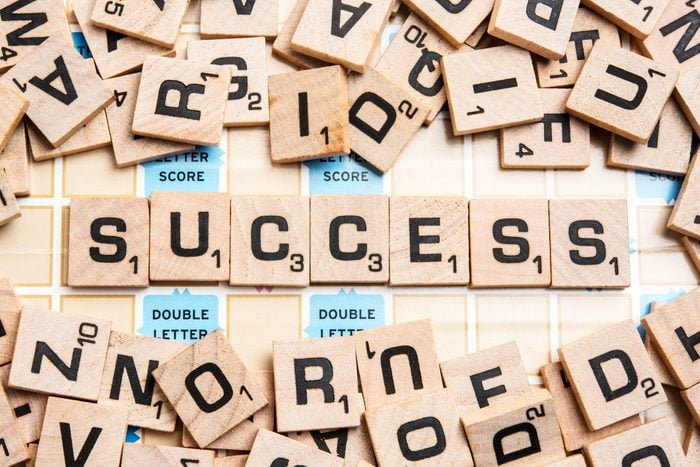
Scrabble rules to help you win the game
If you’re a fan of board games like Monopoly and enjoy a good brain teaser like Sudoku, then Scrabble is right up your alley! It’s super easy to learn and play, even for newcomers to the gaming scene. Plus, with National Scrabble Day coming up on April 13, it’s the ideal opportunity to dive into all the Scrabble rules you should know before playing!
If you’re new to Scrabble, the board-and-tile game is all about competing to form words with lettered tiles on a 225-square board. The word game is like a crossword puzzle, and just like any puzzle, knowing all the rules in-depth can increase your chances of winning.
To make sure you’re ready to dominate the board, Reader’s Digest spoke with Scrabble tournament players David Koenig and Richard Silberg, to compile a list of 13 rules for Scrabble. The goal: to become the ultimate player!
Get Reader’s Digest’s Read Up newsletter for more fun facts, humor, cleaning, travel and tech all week long.
About the experts
|
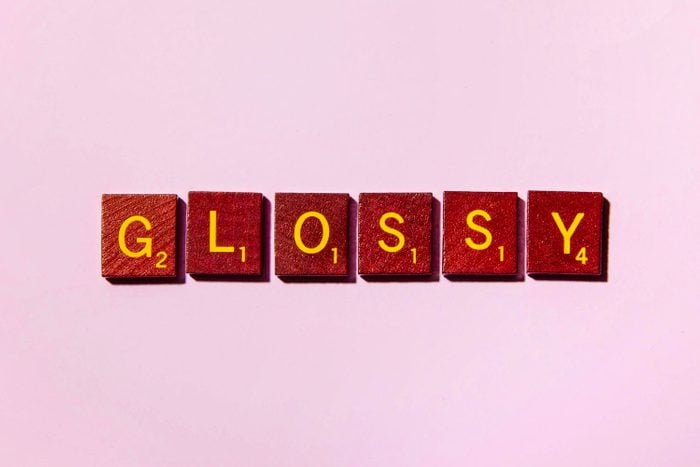
Tournament players use glossy tiles
The tile sets you buy at your local store likely have engraved letters, which aren’t legal in tournament play. “Players could braille the letters or at least know when they are drawing a blank,” says David Koenig, who has played tournament Scrabble since 2002 and was ranked in the top 10 players in North America. Tournament-legal tiles have letters that can’t be identified by touch, and players must hold the bag above eye level when drawing tiles.
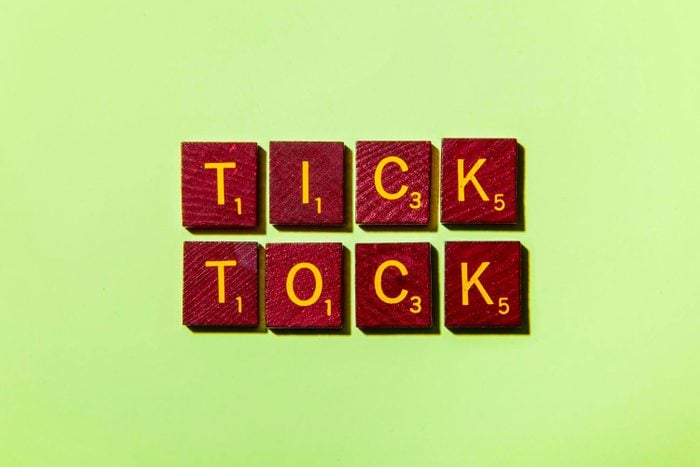
Competitive Scrabble is timed
“Competitive games tend to be a lot faster than the Scrabble you might play at home with the family,” says Koenig. That’s because each player only gets 25 minutes to make all of their moves—and chess clocks are used to keep time. Each side typically makes 11 to 13 moves in a tournament game, which equals about two minutes per play. Exceed your allotted time and you’re penalized 10 points for each minute over 25.
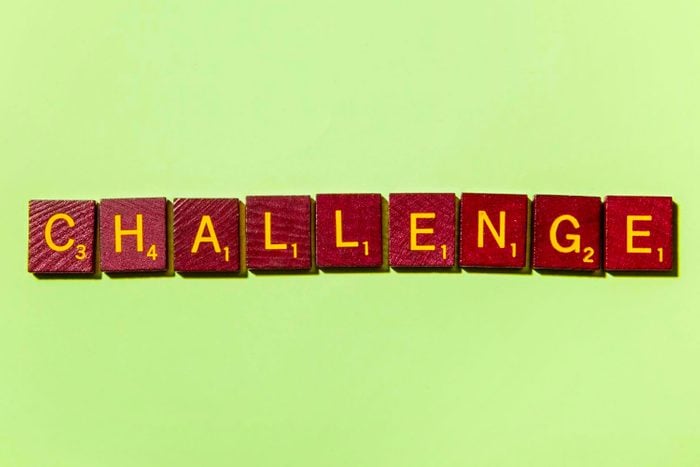
Special rules apply for tournament challenges
In international tournaments, if a challenged word is valid, the challenger does not lose a turn. Instead, the challenged player earns five extra points, explains Koenig. “This penalty is, of course, much less drastic than losing a turn, so players will challenge more frequently,” he says.
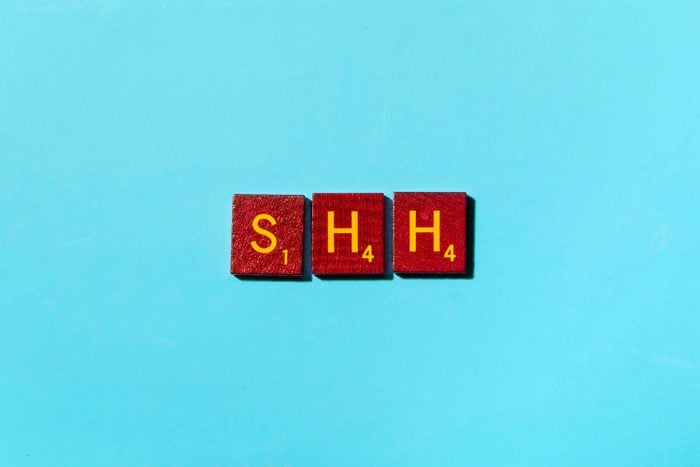
“Coffee-housing” isn’t allowed
During tournament or club play, refrain from making small talk or even cracking your knuckles while your opponent is taking a turn. “Coffee-housing,” or trying to distract or mislead the other player, is considered unethical in Scrabble rules and is strictly forbidden. Unless you are challenging a play or questioning the score, it’s best to simply stay quiet.
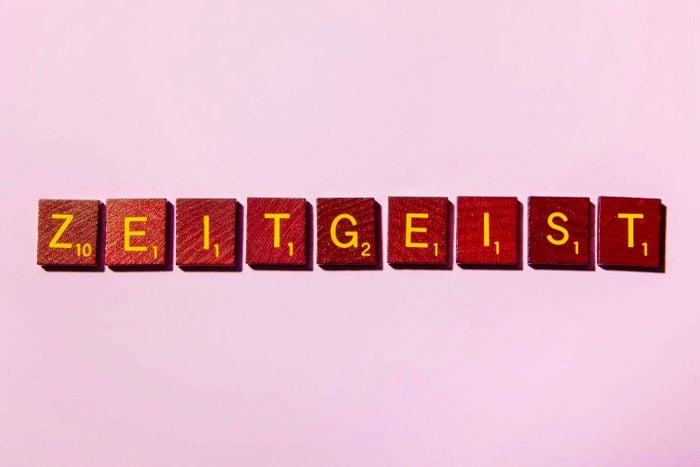
Some foreign words are accepted
According to the official Scrabble rules, “all words labeled as a part of speech” are allowed, including those listed as “archaic, obsolete, colloquial and slang.” Foreign and uncommon words are permitted as long as they appear in English dictionaries. This includes the French words adieu (farewell) and amour (love), along with the Spanish words bandito (thief) and hombre (man). However, proper nouns, abbreviations, stand-alone prefixes and suffixes, and words requiring a hyphen or an apostrophe are not accepted words.
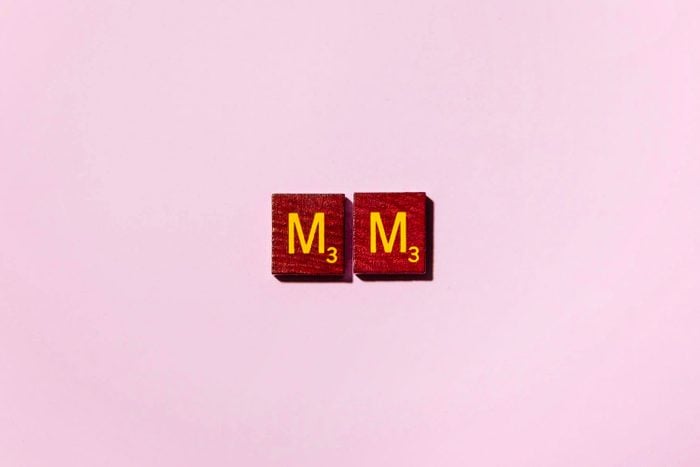
You can play words without vowels—even seven-letter ones
As the Official Scrabble Players Dictionary does not consider Y a vowel, the following two-letter vowel-less words are legal: by, hm, mm, my and sh. There are also 34 three-letter words, 32 four-letter words, 38 five-letter words and 24 six-letter words without vowels. As for seven-letter words, glycyls, rhythms and tsktsks are the only three that are acceptable.
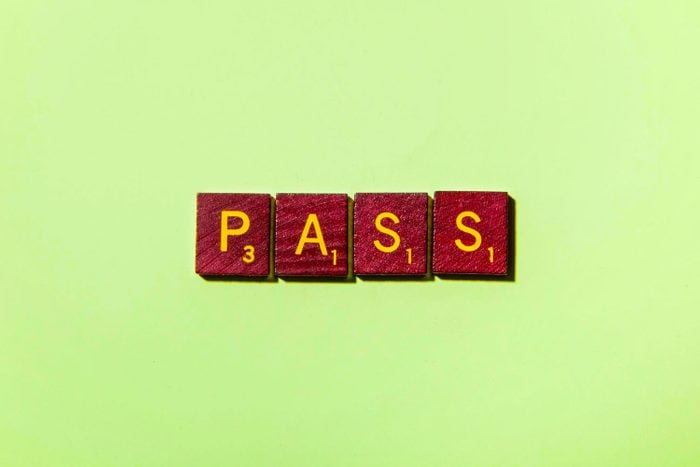
You can always pass your turn
If you don’t want to make a move or exchange your tiles, you can always pass your turn. You get zero points for passing, and the next player takes their turn. However, per Scrabble rules, the game ends if there are six consecutive scores of zero, so make sure somebody makes a play on the board before the sixth pass!
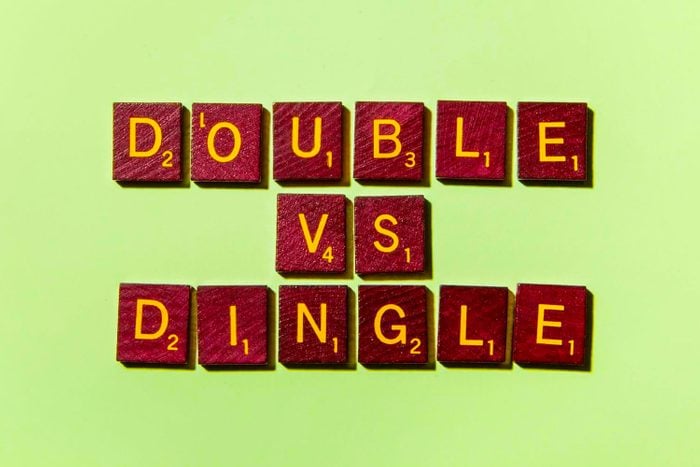
There’s a difference between Double Challenge vs Dingle Challenge
Your opponent may challenge your word before the next play, and if it’s found to be unacceptable, you take your tiles back and lose your turn. Under the Double Challenge in North America, Israel and New Zealand, the challenger loses his turn if the word turns out to be valid. Scrabble games played elsewhere follow the Dingle Challenge Scrabble rule: the first incorrect challenge is not penalized, but subsequent errors result in the challenger losing a turn.
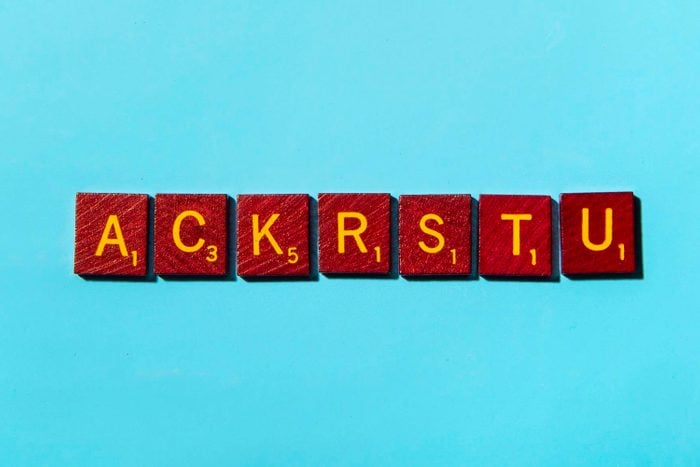
Your rack should be balanced
“Most people mistakenly think a good vocabulary is needed,” says Richard Silberg, who has been playing in Scrabble tournaments for decades. “Actually, the skill is trying to score well and balance your rack.” Balancing means saving a mix of vowels and consonants on your rack that can help you score well on your next turn. Silberg gives this example: “If you have “ACKRSTU,” you could play ‘track,’ ‘truck,’ or ‘struck.'” His advice is to play “truck,” as “the ‘A’ is much more desirable than the ‘U’, and keeping the ‘S’ is usually worth giving up a few points.”
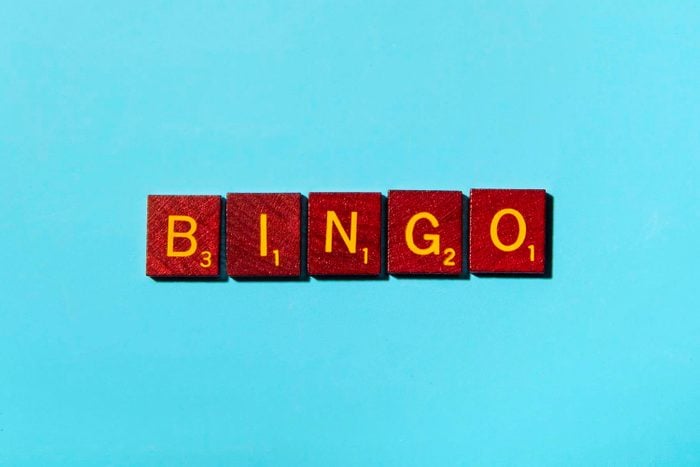
You can get bingo in Scrabble
There’s no yelling “Bingo!” in this word game, but that’s the term for playing all seven tiles on your turn. When you get a bingo in Scrabble, you earn 50 extra points after totaling your score for the word you played.
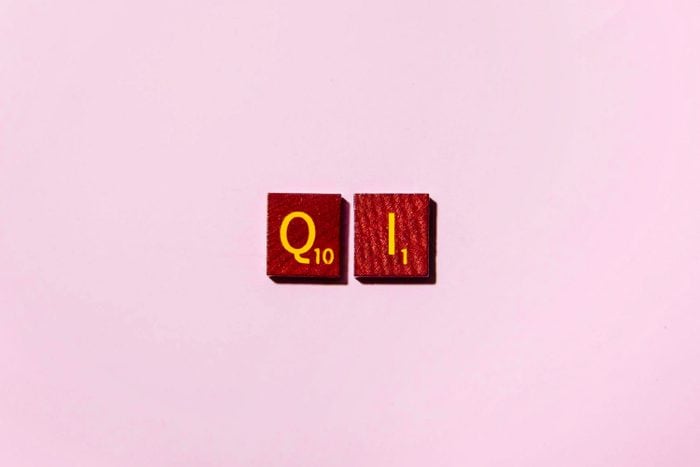
It’s beneficial to know this Scrabble word
According to Koenig, one of the most important words to know in Scrabble is “qi,” a Chinese word for “life force.” Rather than holding out for a “U” or waiting to use a “Q” in a big play, something beginners tend to do, Koenig recommends getting rid of it quickly with a play like “qi” so it doesn’t clog your rack. And if you also have an “S,” “qi” can be made plural for extra points.
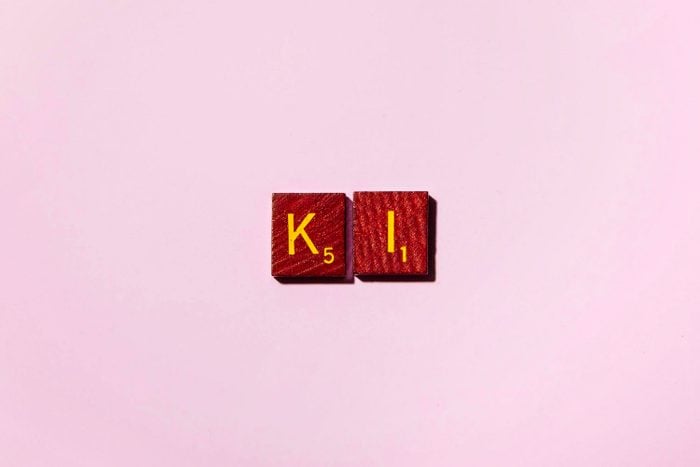
Two-letter words can help in a pinch
Deliberately playing just one or two letters so you can play a high-scoring word on your next turn is called “fishing” or “dumping,” although sometimes you simply may not have any other moves. There are 107 two-letter words that can be played, and many of them easily turn into three-letter words. Here are a few to get started: jo, ka, ki, ex, xi, xu and za.
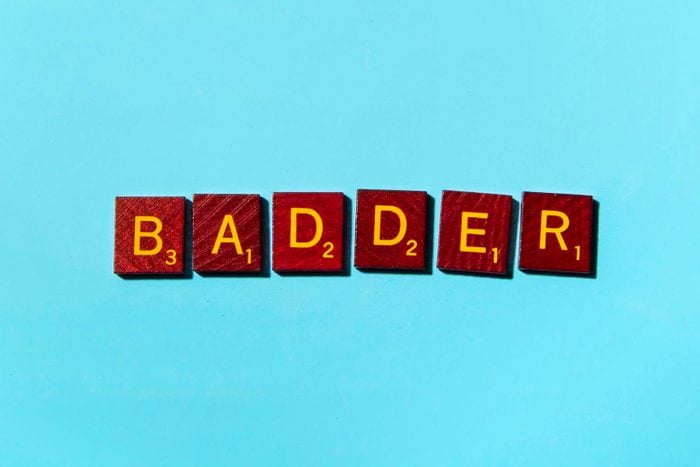
Bluffing is encouraged
“Unlike chess, checkers, Monopoly or any other popular board game one could name, duping an opponent with a play that’s not in the rulebook (the official word list)—or catching an opponent trying to pull a fast one—is seen as a sound and sanctioned skill,” according to a HuffPost article by David Bukszpan. If you won’t be able to score high enough with valid words, you may want to bluff at the end of the game to try and collect more points. It may also be worth risking a phony word if you don’t think your opponent will challenge you.
Why trust us
At Reader’s Digest, we’re committed to producing high-quality content by writers with expertise and experience in their field in consultation with relevant, qualified experts. We rely on reputable primary sources, including government and professional organizations and academic institutions as well as our writers’ personal experience where appropriate. For this piece, we received insight from Scrabble tournament players, David Koenig and Richard Silberg. We verify all facts and data, back them with credible sourcing, and revisit them over time to ensure they remain accurate and up to date. Read more about our team, our contributors and our editorial policies.
Sources:
- David Koenig, Scrabble tournament player who has been competing since 2002. He was ranked in the top 10 Scrabble players in North America; interviewed August 2019.
- Richard Silberg, Scrabble player who has been competing in Scrabble tournaments for decades; interviewed August 2019.
- CPR News: “New Scrabble Dictionary For A New Generation”
- Medill Reports Chicago: “From ‘Aa’ to ‘Za:’ Memorize every two-letter Scrabble word with these 5 tips from the game’s experts”